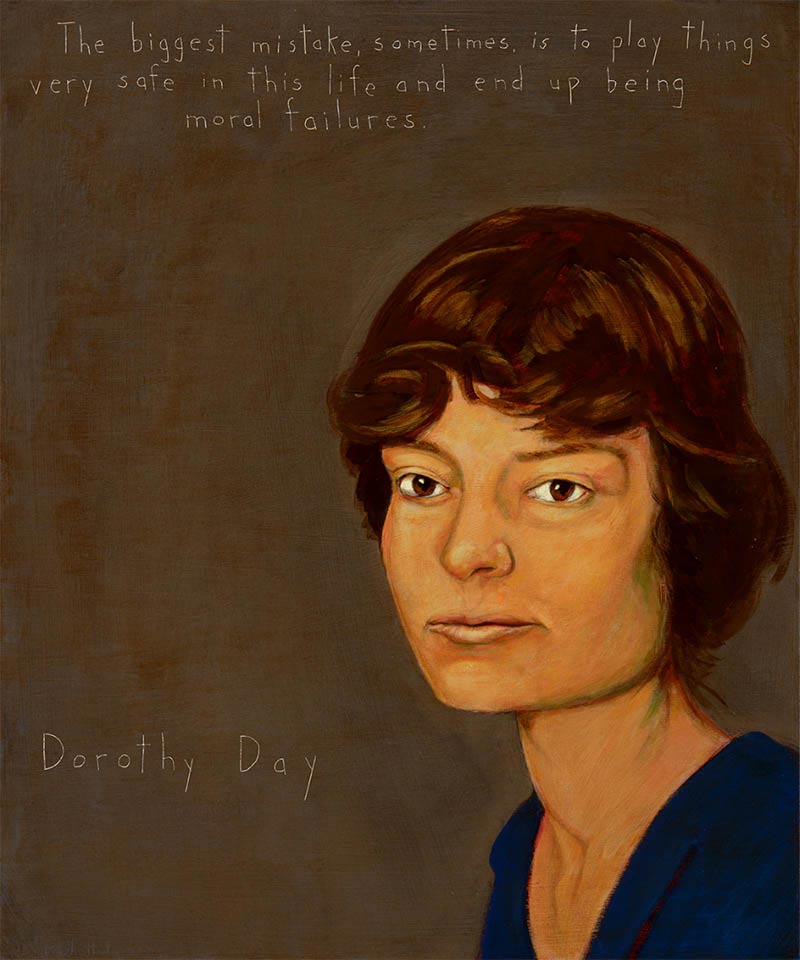
Dorothy Day
Social Activist, Journalist : 1897 - 1980
“The biggest mistake, sometimes, is to play things very safe in this life and end up being moral failures.”
Biography
Dorothy Day was born in New York in 1897. Her childhood was spent mostly in Chicago, and she attended the University of Illinois at Urbana-Champaign for two years before returning to New York with her family in 1916. Her reading of such authors as Leo Tolstoy and Upton Sinclair deepened her concern for the sufferings of the poor. Day’s conversion to Catholicism followed the birth of her daughter. She became committed to a revolution of the heart, a revolution in which human individuals experience transforming change and the spiritual renewal that is the call of the Gospel to care for the hungry and despised.
In Peter Maurin, Dorothy Day met a like-minded believer and reformer. In 1933 the two began the Catholic Worker movement, which not only published an influential newspaper but founded a number of hospitality houses to serve the homeless.
After the United States entered World War II, Day wrote, “We are still pacifists. Our manifesto is the Sermon on the Mount, which means that we will try to be peacemakers. Speaking for many of our conscientious objectors, we will not participate in armed warfare or in making munitions, or by buying government bonds to prosecute the war, or in urging others to these efforts.
“But neither will we be carping in our criticism. We love our country, and we love our President. We have been the only country in the world where men of all nations have taken refuge from oppression. We recognize that while in the order of intention we have tried to stand for peace, for love of our brother, in the order of execution, we have failed as Americans in living up to our principles.”
Day also wrote, “What we would like to do is change the world – make it a little simpler for people to feed, clothe, and shelter themselves as God intended them to do. And . . . by fighting for better conditions, by crying out unceasingly for the rights of the workers, of the poor, of the destitute . . . we can work for the oasis, the little cell of joy and peace in a harried world.”
The author of these words has been considered for sainthood in the church she loved, but shortly before her death, in 1980, she said: “Don’t call me a saint. I don’t want to be dismissed so easily.”
Programs
Americans Who Tell the Truth (AWTT) offers a variety of ways to engage with its portraits and portrait subjects. Host an exhibit, use our free lesson plans and educational programs, or engage with a member of the AWTT team or portrait subjects.

Education
AWTT has educational materials and lesson plans that ask students to grapple with truth, justice, and freedom.

Exhibits & Community Engagement
AWTT encourages community engagement programs and exhibits accompanied by public events that stimulate dialogue around citizenship, education, and activism.